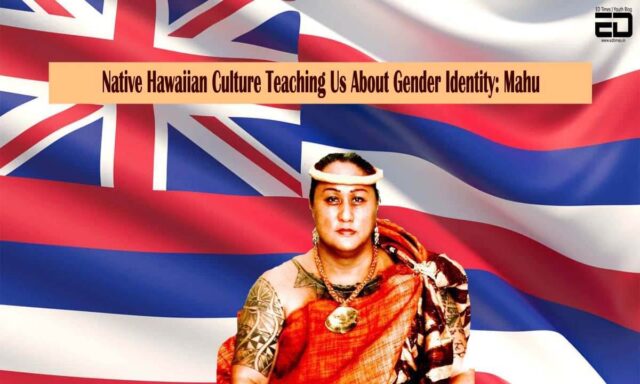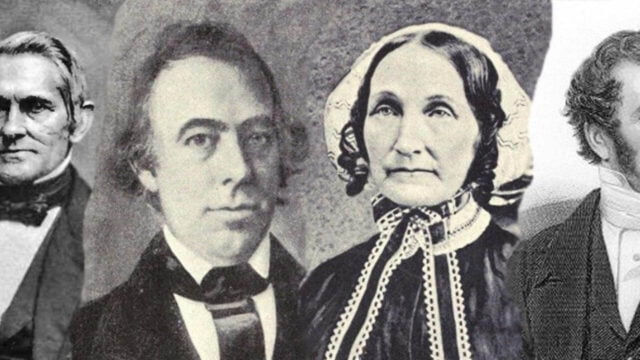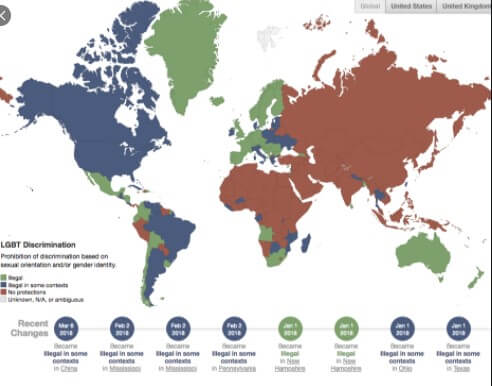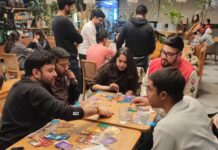LGBTQIA+ (Lesbian, Gay, Bisexual, Transgender, Queer, Questioning, Intersex, Asexual, and Ally) is a community that has endured a great deal and has been on the receiving end of misunderstanding and, thereby, hatred.
Dating back to our ancestors, the concept of gender identity has always been known to us. From mythological characters to cultural aspects, there’s no facet devoid of this community.
And yet, the atrocities towards them seem endless. But this was not always the case. Many African, South Asian, and native cultures worldwide support LGBTQIA and try to understand and normalize the fluidity amongst themselves.
Gender Fluidity in Hawaii and other Pacific Islands
The term ‘Mahu’ is commonly used in cultures of Hawaii and various Pacific Islands to refer to people who identify themselves as both male and female. The culture promotes acceptance of their traits, however different from the consensus.
Native Polynesian cultures readily accept the coming out of a person and celebrate gender fluidity. According to them, it is as much a part of our lives as any other human experience.
“It’s understood that each individual is his or her person, and their expression of themselves is just that – themselves,” said Kumu Hina, Hawaiian transgender activist.

Transition: Identities Unlocked
The fact remains that whether a person transitions from male to female or the other way around, they ultimately learn to accept and acknowledge both of their beings.
As for the acceptance from all around, the perspective varies with variation in cultures. What is feminine and what is masculine is an entirely different diction amongst Western and European cultures. In contrast, in Polynesia, the basis of this conversation is not at all the same.
All the secondary features that are the footing for differentiating between masculine and feminine in Western culture are not separately assigned to either in Hawaiian culture.
For example, having body hair, being comparatively taller, having facial hair, possessing a stronger and sharper bone structure are all associated with males in Western culture.
On the contrary, beauty standards in Hawaiian culture are fluid. It is not uncommon for women to have these characteristics, nor is it mandatory for men to acquire the same.
Read More: What Is The Difference Between Gender Neutrality And Gender Fluidity?
Origin Of The Word ‘Mahu’
Since the majority of Hawaiian culture was based on an oral tradition, it was not until the coming of missionaries on the island that, on being introduced to the fluidity practiced, coined the term ‘Mahu’ for it.

Ironically, during those times when people were neither educated enough nor much aware, they accepted and treated said community as an insider and not as someone excluded from their own, unlike in modern times when almost every individual is extra aware and quite literate and yet judges and has prejudice.
Adjective Not Noun
Perhaps what needs to be considered first and foremost is that the tag of being a member of LGBTQIA is nothing to be ashamed of, nor is it any matter of grave concern.
It is simply what you identify yourself with and as usual as any other gender identity—nothing but an adjective that defines your gender identity, not a noun that describes your entire being.
If our initial society had any sort of issue with the said community, we would have seen plenty of writings indicating that there was something morally wrong with the LGBTQIA.
But that’s not the case, and in fact, we have writings that promote as well as support the members.
“People who have grown here have been groomed by our education system to acquiesce to the American politics and the American system of governance when, here in Hawaii, the native people of these islands, we never relinquished our sovereignty to the United States of America and they continue the illegal occupation of our island,” said Kumu Hina.
That being said, the only consideration-worthy aspect of this is that the aim is not to curb differences and live as if they don’t exist. Because they certainly exist and in plenty.

What we need to do is accept and acknowledge the said differences and normalize them. Our traditions have always supported love, faith, and support for our fellows, so why suppress them now?
Image Source: Google Images
Sources: Yes Magazine, Independent.ie, Honolulu Magazine
Find The Blogger: @evidenceofmine
This post is tagged under: Hawaii, Hawaiian, Hawaiian culture, culture, traditions, Hawaiian traditions, LGBTQIA, LGBTQ+, LGBTQ, lesbian, gay, bisexual, transgender, questioning, queer, intersex,asexual, ally, LGBTQIA community, LGBTQ community, LGBTQ+ community, gender, sex, sexual characters, gender identity, sexual identity, gender fluid, gender fluidity, fluidity, mythology, Africa, African culture, Asia, Asian culture, South Asian, South Asian culture, Native, Native culture, Pacific islands, Mahu, Hawaiian Mahu, Mahu in Hawaii, Mahu in Hawaiian culture, fluid traits, gender fluid traits, Polynesian culture, Native Hawaii, out of closet, in the closet, accepting gender identity, gender fluid person, LGBTQIA community member, LGBTQ community member, LGBTQ+ community member, transgender activist, activist, human rights activist, gender transition, male, female, masculine, feminine, third gender, non binary gender, non binary, non binary identity, Western beauty concept, Hawaiian beauty concept, European beauty concept, Western beauty standard, Hawaiian beauty standard, European beauty standard, Western culture, European culture, gender difference, gender role, missionaries, missionaries in Hawaii, oral tradition, Hawaiian oral tradition, judgement, prejudice, identity, Native Hawaiian culture and gender identity, Hawaiian culture and gender identity, gender identity in Native Hawaiian culture
Other Recommendations:
Meet Rudrani Chettri: The Transgender Actor Whose Strong Acting Moved Audience




































